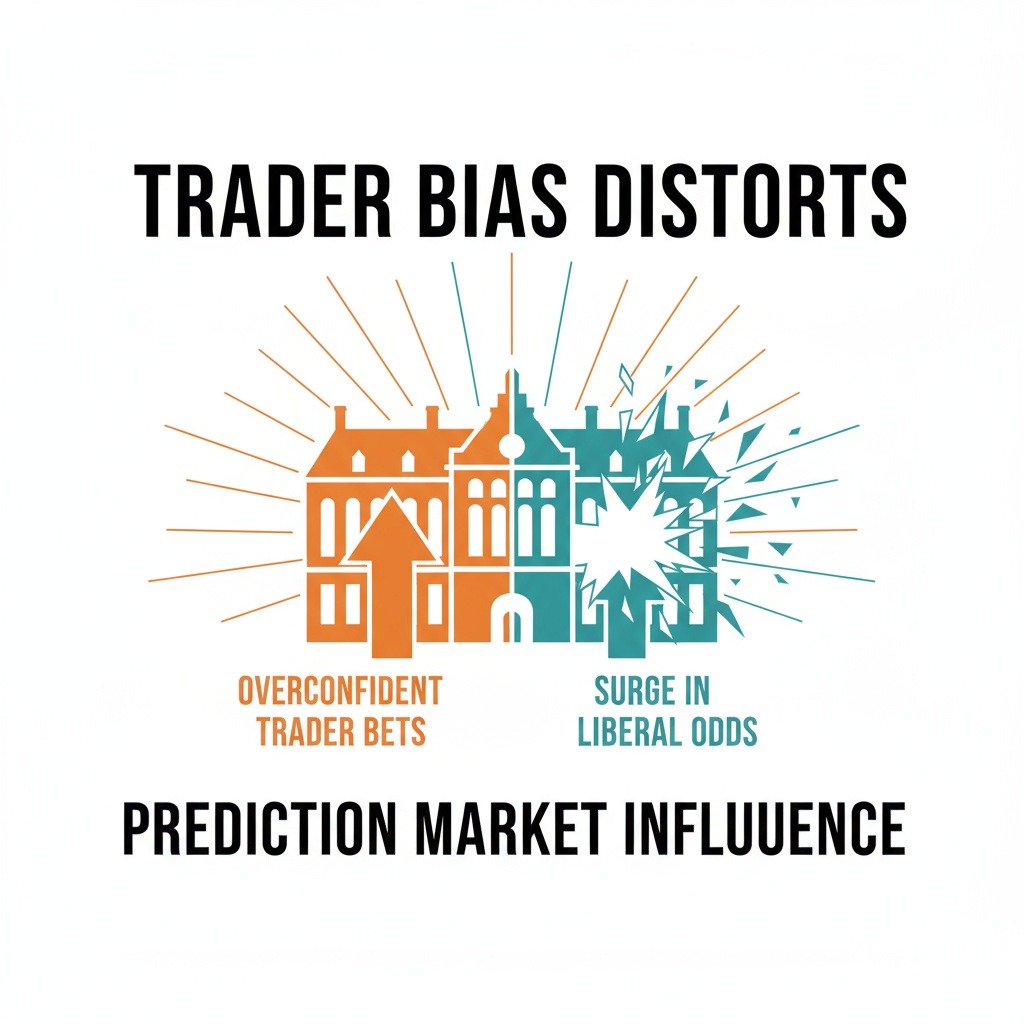In the lead-up to the Netherlands’ October 29 parliamentary elections, many participants on Polymarket were firmly convinced that Geert Wilders’ nationalist Party for Freedom (PVV) would secure a decisive victory. Despite shifting polls showing rising support for Rob Jetten’s socially liberal Democrats 66 (D66), the market prices remained largely unchanged, favoring PVV positions.
However, the release of initial exit polls triggered a sudden market reversal. Within minutes, the odds for D66 surged dramatically from 5% to nearly 100%, resulting in substantial losses for traders holding long PVV bets. Official projections with 98% of votes counted indicated that both PVV and D66 would each claim 26 seats in the 150-seat lower house of parliament, marking a significant loss of 11 seats for PVV.
This outcome mirrored similar dynamics observed on Kalshi, another prediction market platform, where traders also continued to overestimate Wilders’ chances until election day. Analysis from Polymarket Analytics suggests that, rather than reflecting accurate foresight, the markets became a battleground of trader convictions. Many traders maintained static, overconfident PVV positions for weeks, unwilling to adjust their stance despite shifting polling data.
Interestingly, a relatively small cohort of data-driven traders capitalized on late polling shifts and the resulting volatility. These participants made six-figure profits by timely repositioning towards D66, contrasting with the majority who viewed the platform as a venue to affirm political beliefs rather than to respond rationally to evolving information.
Similar behavioral patterns have been noted in past events, including the 2020 U.S. presidential election when Polymarket’s pricing unexpectedly favored former President Donald Trump. One theory attributed this to the political leanings common among cryptocurrency users. Another explanation involved a large $30 million wager placed by an individual known as “Theo,” a French national who commissioned alternative polling methods and challenged prevailing forecasts. Unlike Theo’s data-driven approach, the Dutch election lacked such contrarian participants.
Some PVV backers on Polymarket displayed steadfast commitment to their positions despite contrary polling signals. For instance, accounts with politically explicit usernames invested heavily in “yes” contracts for PVV and resisted any portfolio adjustments for extended periods. According to Polymarket Analytics, this was not due to a lack of information but rather a reluctance to integrate new data into trading decisions.
The contrasting approaches underscore how prediction markets can serve as reflections of participant biases rather than purely objective estimators. While a subset of traders acted as rational market participants aiming to profit from market inefficiencies, others remained anchored by ideological convictions, creating liquidity but reducing overall predictive accuracy.
The Dutch election episode thus highlights the complex interplay between market mechanics and human psychology in decentralized prediction platforms. In environments with limited liquidity and strongly held beliefs, such markets can behave more like echo chambers than precise forecasting tools.
For further insight, research indicates that Polymarket achieves approximately 90% accuracy in predicting global events, though individual cases, such as the Dutch election, reveal the nuances behind those statistics.



